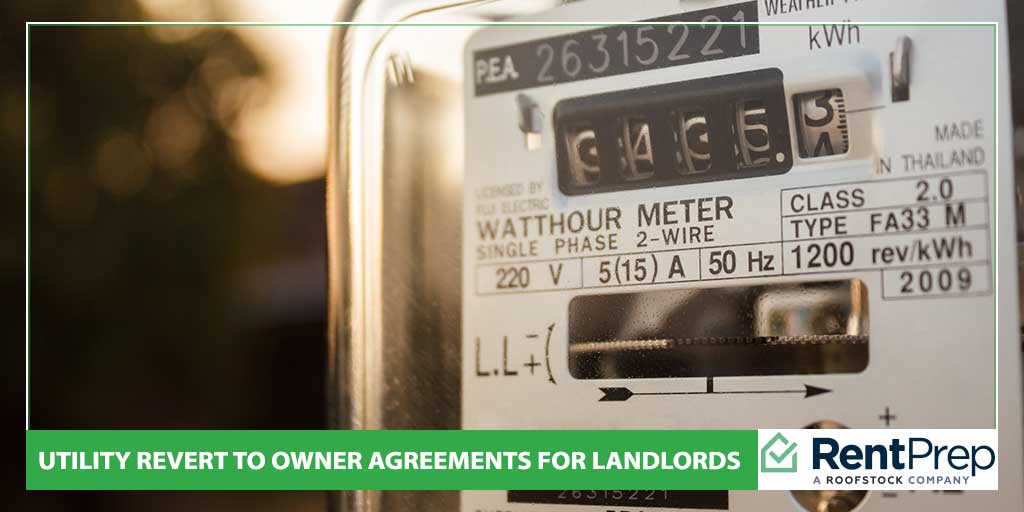

One of the big hassles for landlords with turning over an apartment from a previous tenant to a future tenant is what happens to the utilities in the meantime. Common utilities in rental units include electric, gas, water, sewer and garbage. In some instances, landlords have all the utilities for a rental property in their name and charge a slightly higher rent that includes utilities. This way, there is no conflict with starting and stopping accounts with the utility companies.
More frequently, landlords expect the tenant to put the utilities in their own name upon moving in, and end the account when they move out. But what about the time between tenants, which might be only a day or two or stretch out to weeks or even months?
That’s where a revert to owner agreement can make things stress-free and easy for landlords everywhere.

Also known as a landlord interim billing agreement, this is a contract with the utility company that ensure the utility account will automatically revert to the landlord’s name in between tenants. It ensures the continuance of the service so that nothing is shut off when the property is not occupied.
The landlord, property manager or owner must sign up for the utility then all utility billing information is put in the landlord’s name. When a tenant signs up for the utility, the billing is put in the tenant’s name and the tenant is responsible for the bills. Upon notification that the tenant is moving out and cancelling the utility, the utility billing reverts back to the landlord.
There are several benefits of setting up a landlord interim billing agreement, most importantly that the service to the property is not interrupted, which could cause problems with the rental property.
Here are 5 benefits of setting up such a plan:
If a property’s information changes, it is up to the landlord to notify the utility company. Similarly, if the landlord sells the property or adds additional properties, he or she needs to relay the new information to the company.

Many utility companies across the country have some kind of revert to owner agreement for landlords, although they might go by different names. Here are just a few examples with different utility companies:
To see if your area utility company offers such a service, check out their website and look for a link to something with a similar sounding title that has to do with landlords, property owners and transferring or reverting utilities. If you still don’t find any information, call and speak with a customer service representative, who would be happy to help out.
Landlords, tenants and utilities can combine to create some interesting conflicts, especially when tenants don’t keep up on utility payments. It’s always a good idea to educate yourself on what the utility company’s policy is for shutoffs, late payments, non-payments and so forth when it comes to rental properties. Always be clear in the lease agreement about utility responsibilities and the consequences of non-payment.
In many instances, the landlord or property owner is ultimately responsible for all unpaid utility charges, even if the utility account is in the tenant’s name. Many companies include a service where they will notify a landlord of the tenant’s delinquency, while others will only do this upon a landlord’s request. Because every company is different, it’s critical for landlords to know what the possibilities and scenarios are concerning tenants and utilities, long before it’s too late.
The landlord revert to owner agreement benefits all add up to mean that landlord interim billing agreements ease stress during turnovers, free up time coordinating utilities when between tenants and saves time on the phone and online. It’s an important service that rental property owners and landlords should take advantage of as part of an overall property management strategy.
Do you have a revert to owner agreement set up for any of your properties? Please share this article and let us know your experiences in the comments section below.
Our tenant screening services have been trusted by over 100,000 landlords & property managers since 2007. SEE OUR PACKAGES
Starting at just $21.00!